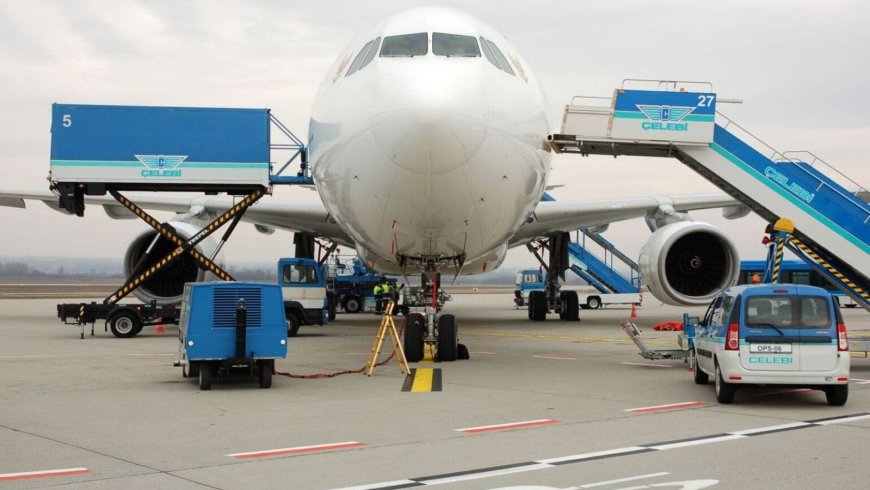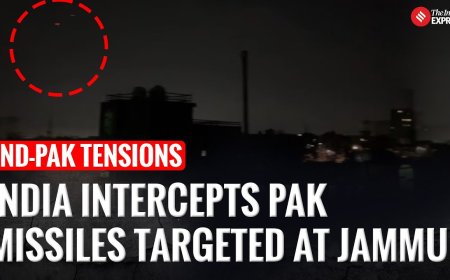India Bans Turkish Ground-Handling Giant Çelebi Over National Security Concerns
India has barred Turkish ground-handling company Çelebi Aviation from operating at major airports, citing national security concerns. This move signals rising scrutiny over foreign firms in sensitive infrastructure.

India Bars Turkish Ground-Handling Firm Çelebi Over National Security Concerns
Introduction
In a significant development with geopolitical undertones, India has decided to bar Turkish ground-handling company Çelebi Aviation from operating at major Indian airports. The move, reportedly rooted in national security concerns, marks a rare intervention by Indian authorities into the domain of civil aviation operations, especially against a foreign private enterprise that has been a long-standing player in the country’s airport ecosystem.
This decision comes at a time when New Delhi is increasingly recalibrating its strategic posture, especially in critical infrastructure sectors such as transportation, communications, and energy, where foreign entities—especially those from adversarial or geopolitically sensitive countries—are being closely scrutinized.
Background: Çelebi's Indian Footprint
Çelebi Aviation has had a substantial presence in India for over 15 years. The company began operations in 2009 and has since become one of the top ground-handling service providers at several major airports including Delhi, Mumbai, Bengaluru, Hyderabad, and Kochi. It handled cargo, baggage, aircraft marshaling, and other ramp services for major airlines such as Lufthansa, Qatar Airways, Emirates, and IndiGo.
The firm operates under ground-handling licenses issued by the Airports Authority of India (AAI) and the Directorate General of Civil Aviation (DGCA), which are generally valid for ten years. Its license at Indira Gandhi International Airport in Delhi, one of the most lucrative markets, was last renewed in 2019.
However, recent developments suggest that Indian intelligence and security agencies have flagged Çelebi’s growing influence and operational control at critical nodes of the country’s air infrastructure as a potential risk.
The Ban: What We Know
The Ministry of Civil Aviation, acting on inputs from national security agencies, declined to renew or extend Çelebi’s ground-handling contracts in India. The DGCA has reportedly issued notifications to relevant airport operators to make alternative arrangements to avoid service disruptions, particularly at major metro airports.
The official reason provided is a vague but strong phrase: "national security considerations." Sources close to the matter suggest that Çelebi's links to Turkish entities that are perceived as close to Ankara’s strategic and military apparatus have raised eyebrows in New Delhi.
While the Indian government has not publicly elaborated on the specifics of the threat perception, the decision aligns with recent efforts to ring-fence sectors like telecommunications, power grids, and transportation from undue foreign influence—especially from countries with whom India does not have defense or intelligence-sharing agreements.
Turkey’s Political Alignment: A Point of Contention
This development cannot be divorced from broader India-Turkey relations. While both countries officially maintain diplomatic ties, Ankara has frequently voiced support for Pakistan on issues like Kashmir—a position that has irked New Delhi.
President Recep Tayyip Erdoğan has, on multiple occasions, raised the Kashmir issue at the United Nations and has openly criticized India’s domestic policies, including the revocation of Article 370 in Jammu & Kashmir. These actions have led Indian policymakers to view Turkey not merely as a neutral trading partner but as a nation whose foreign policy may, at times, be adversarial to India's core interests.
Given this context, Turkish investments and businesses—especially those in sensitive sectors—are being examined with greater scrutiny.
Implications for Indian Aviation
Çelebi’s exit will create a temporary vacuum in ground-handling services at key airports, but Indian officials have assured that contingency plans are in place. Domestic companies like Air India SATS, Bird Group, and AI Airport Services Ltd are expected to step in to fill the operational gap.
In the medium term, the ban could spur the growth of indigenous ground-handling firms and reduce dependency on foreign players. It also sends a signal to other foreign investors: critical sectors like aviation infrastructure are no longer open fields for unchecked foreign participation.
Moreover, this move may prompt airport operators like GMR and Adani, which operate many of India’s busiest airports, to reevaluate their vendor and service provider portfolios to ensure they align with the evolving national security framework.
Legal Repercussions and International Response
Çelebi is expected to challenge the Indian government’s decision both in local courts and possibly through international arbitration. The firm maintains that it has complied with all Indian laws and has cooperated fully with regulatory bodies.
The Turkish government has not issued a formal response yet, but given the strategic nature of Çelebi and its stature in Turkey’s commercial aviation sector, a diplomatic protest cannot be ruled out.
If the matter escalates, it could complicate India-Turkey trade relations. Bilateral trade stood at approximately $12 billion in 2024, with Indian exports ranging from petroleum products to automobiles, and Turkish exports including machinery, steel, and construction services.
Historical Parallels
This is not the first time India has taken a decisive step in the name of national security against a foreign entity. In 2020, India banned over 200 Chinese apps, including TikTok and WeChat, citing data security risks. Telecom gear makers like Huawei and ZTE were also effectively shut out of 5G trials and future infrastructure projects.
The decision to bar Çelebi follows the same pattern: a preventive strike to avoid future vulnerabilities rather than a reactive measure post-crisis.
Industry Reactions
Indian airline operators have offered mixed reactions. While most acknowledge the strategic rationale, some have expressed concerns over potential short-term operational disruptions. Çelebi was known for its efficiency and scalability, especially at high-volume airports like Delhi and Mumbai.
Meanwhile, industry bodies such as the Federation of Indian Chambers of Commerce & Industry (FICCI) and the Confederation of Indian Industry (CII) have welcomed the decision as a necessary measure to bolster domestic capability and sovereignty.
Ground-handling is a critical yet often overlooked aspect of aviation safety, security, and customer service. As India looks to become a global aviation hub, ensuring that all service providers align with national interests is non-negotiable.
Future Course: What Lies Ahead?
The decision to bar Çelebi could usher in a new wave of ground-handling policy reforms. The Ministry of Civil Aviation may revise the eligibility criteria for foreign players, possibly including stricter due diligence checks, intelligence clearances, and a cap on foreign ownership in specific airport service verticals.
This could also lead to the creation of a centralized oversight body to vet foreign participation in civil aviation services. Furthermore, Public-Private Partnerships (PPP) in airport infrastructure may need to incorporate national security clauses in their standard operating agreements.
India is also likely to pursue strategic partnerships in aviation with countries considered neutral or friendly, such as Japan, the United States, France, and the UAE. This realignment could attract investment and technology transfers while keeping the national interest at the forefront.
India’s decision to bar Çelebi Aviation from ground-handling operations marks a turning point in how the country views foreign involvement in critical infrastructure. More than just a regulatory issue, it underscores a larger strategic shift in India’s national security doctrine—one that prioritizes long-term resilience over short-term convenience.
As the world grows increasingly interconnected, the line between commerce and national security is blurring. India’s assertive posture in this case signals a new era of policymaking—where security is not just about borders, but about every node in the network of the modern state.
What's Your Reaction?
 Like
0
Like
0
 Dislike
0
Dislike
0
 Love
0
Love
0
 Funny
0
Funny
0
 Angry
0
Angry
0
 Sad
0
Sad
0
 Wow
0
Wow
0












































































